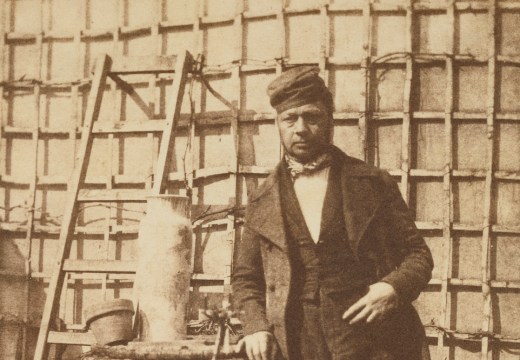Marlborough Gallery has announced that it will be closing in June. The dealership has held a pre-eminent position in the contemporary art world for nearly 80 years. It was founded in 1946 by the art dealers Frank Lloyd and Harry Fischer, both Austrian émigrés who met in the British army during the Second World War. In 1948 the pair were joined in the business by David Somerset, who would become the Duke of Beaufort. The gallery made a name for itself with its exhibitions of Impressionist and post-Impressionist works, including a string of exhibitions dedicated to the Expressionists. They went on to represent a number of leading British artists including Henry Moore, Lucian Freud, Frank Auerbach and Paula Rego. In 1963 Marlborough set up a gallery in New York and began representing artists such as Philip Guston and Richard Diebenkorn, as well as the estates of Jackson Pollock and Franz Kline. In more recent years, Marlborough has been beset by leadership troubles and financial difficulties. In 2020 Frank Lloyd’s nephew Pierre Levai, then chairman of the gallery and suffering from complications from a coronavirus infection, was reportedly ousted by Lloyd’s son Gilbert. According to Levai’s son Max, who was president of the gallery at the time, the board took advantage of Pierre Levai’s condition to vote to close the New York gallery permanently. A spate of lawsuits ensued, and amid the turmoil several high-profile artists departed the gallery, including Rego and Maggi Hambling. The gallery will be selling off its collection, which reportedly comprises 15,000 artworks and is valued at $250m, over the coming years. According to a statement, a portion of the proceeds will go to non-profit institutions that support artists.
Endeavor, the conglomerate that owns Frieze, the Armory Show and EXPO Chicago, as well as World Wrestling Entertainment, will be acquired by the private equity firm Silver Lake for $13bn. A sprawling organisation that also comprises sports companies, betting outfits and marketing and talent agencies, Endeavor has been a publicly listed company for three years. Silver Lake already controls about 71 per cent of Endeavor’s voting rights, and will be buying 100 per cent of the shares it does not currently own. The acquisition is expected to close in the first quarter of 2025.
Kim Conaty has been promoted to chief curator at the Whitney Museum of American Art. Since 2017 she has served as curator of drawings and prints at the museum. The chief curator role was left temporarily vacant in November 2023 by Scott Rothkopf when he became the director of the Whitney. Conaty has said that her aims as chief curator are to focus more on representing Indigenous and Latino artists, to invest in emerging talent and to take a more considered approach to collecting. Before joining the Whitney, she had held curatorial posts at the Museum of Modern Art, the Guggenheim and the Clark Art Institute.
François Pinault’s 26-year-old grandson has replaced Pinault on the board of Christie’s, reports Bloomberg. It has been taken as evidence of succession planning on the part of the 87-year-old Pinault, who founded Artémis, the investment company that acquired Christie’s in 1998. Pinault’s grandson, François Louis Nicolas Pinault, is a French national and is listed on a company filing as a ‘product marketing manager’. He is the eldest son of François-Henri Pinault, the CEO of Kering, the luxury goods company that owns brands such as Gucci and Saint Laurent, and which is also owned by Artémis. Two of François-Henri’s siblings sit on the supervisory board at Artémis, which has assets worth around $40bn. François Pinault himself is worth an estimated $32bn, and since handing the reins of Artémis to François-Henri in 2003 has intensified his drive to collect art, opening three major museums between 2005 and 2016: the Palazzo Grassi and the Punta della Dogana in Venice, and the Bourse de Commerce in Paris.
The Italian architect and designer Gaetano Pesce has died at the age of 84. He was best known for his bold use of colour and innovative approach to form, which found its most playful expression in the many household objects he infused with wit and imagination. A prominent figure in Italy’s Radical Design movement, he rejected modernism’s emphasis on functionality, preferring expressive, even figurative forms. One of the objects he is best remembered for is the ‘feminist armchair’ he designed in 1968, which, with its curvaceous form and accompanying foot-rest, went on to be given nicknames including ‘La Mamma’ and ‘Big Mama’. (‘It’s an image of a prisoner,’ Pesce said. ‘Women suffer because of the prejudice of men. The chair was supposed to talk about this problem.’) Never afraid to bring politics into the domestic sphere, he found right angles ‘dehumanising’, even refusing to exhibit at the Aspen Art Museum in Colorado in 2022 because of the wooden grid that covers the building. Pesce also created performance art and designed buildings around the world, including a crimson office block covered in plants in Osaka, Japan and a vibrant holiday home covered in tiles that resemble fish scales in Bahia, Brazil.
Campaigners have called for the British Museum to be investigated by regulators over a claim that the institution has been overly secretive about 11 Ethiopian tabots in its collection. The wood and stone altar tablets, which were looted by British soldiers in 1868 after the siege of Maqdala, are considered too sacred to be seen by anyone except for Ethiopian clergy. In 2019, Ethiopia’s culture minister, Hirut Kassaw, requested their return in an informal discussion with Hartwig Fischer, the director of the museum at the time. Returning Heritage, a non-profit organisation that gathers information about contested cultural artefacts and restitution claims, has submitted a complaint to the Information Commissioner’s Office (ICO) that the museum’s response to its freedom of information request, made in August 2023, did not disclose key details of trustee meetings regarding the tabots. Though the British Museum Act 1963 forbids the sale, exchange, dispersal or disposal of its collection, there is an exemption for objects judged ‘unfit to be retained’. Returning Heritage says that its ‘aim is to understand why the Trustees appear to (falsely) believe they cannot lawfully remove the tabots from the Museum’s collection’. Proposals by the museum for the management of the tabots were sent to Returning Heritage in 2022 but with redactions that made the documents almost unreadable. The ICO has confirmed the complaint is eligible for investigation.
Unlimited access from just $16 every 3 months
Subscribe to get unlimited and exclusive access to the top art stories, interviews and exhibition reviews.














![Masterpiece [Re]discovery 2022. Photo: Ben Fisher Photography, courtesy of Masterpiece London](http://www.apollo-magazine.com/wp-content/uploads/2022/07/MPL2022_4263.jpg)






